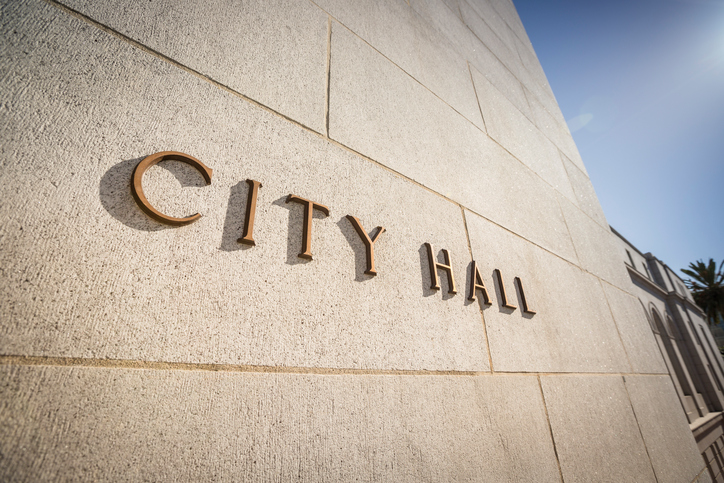Without numerous creative efficiencies, small government would be simply impossible. Cities, counties and small towns must deliver manifold direct services, listen to all manner of supplicants, show no favoritism whatsoever, make all of their documents easy to access, and open their meetings to sages and scoundrels in equal measure. Scrutiny from the public, the state and the media is incessant. That ambitious job description is not matched by a bountiful budget. As a result, municipalities typically operate out of B-grade offices, relying heavily on volunteers to supplement staff contributions. It’s often “business as usual” if the legal counsel does double duty as the facilities inspector or the crossing guard. Every opportunity to save staff hours or budget dollars is like water in the desert. Agenda management software meets the constant need for small government to do much more with much less.
A Chairperson’s Choices
Imagine that you are responsible for convening monthly meetings of a city council. If you’ve done this for a while, you’ll know that the two hours of the meeting are just the tip of the iceberg. The meeting represents the culmination of hours of work behind the scenes both before the current meeting and after the previous one. As soon as the last meeting ended, you would type up the minutes from that meeting (or delegate the task) and post them publicly. At that point, the clock would start ticking on the next project: planning the following month’s meeting.
Say your state requires you to post the agenda a week ahead of the meeting. You now go into reverse-engineering mode: What items will need to be discussed? Voted on? Researched? Which experts or public representatives should speak? What steps should you take to have that all lined up by the T-minus-one-week deadline? You make phone calls to anyone whose research or testimony you will need. What comes next depends on the tools you bring to the job.
Using traditional tools plus email, you will send out an email to the council members two weeks before the meeting, asking for items they’d like to put on the agenda. Using their input and your own knowledge of unfinished business from past meetings, you will type up an agenda.
You will email the committee chairs to ask them to send in their committee reports. Then you’ll assemble the board packet, pulling together relevant laws, reports and newspaper articles that the council needs to read before the meeting. If you use the internet, you’ll compile these materials in less time than physical assembly once required. To deliver the packets, though, you must decide which is the lesser evil: labor-intensive snail mail or high-risk email.
If you’re cautious about cybersecurity, you will probably opt for snail mail to get the board packet to all of the council members. First, you will print out all of the documents you need and make copies. Then, on a long table, you will collate piles of paper, one complete set for each councilperson. Upon manually creating each councilperson’s packet, you will put each set in a sturdy envelope or a box, add addresses and stamps, and take them to the post office – a few days ahead of the one-week lead time that is required.
That gets the needed documents to board members, but you still must post the agenda itself to the public in order to comply with sunshine laws. Still avoiding the internet, you’d print out multiple copies, drive or walk to the library and the town hall, and pin up the agenda on a prominent bulletin board. By now, you’ve spent at least a day on collecting and distributing materials.
Perhaps you’re not suspicious of cyberspace and you decide to save all of that legwork. So you email the agenda and the supplemental documents as attachments in emails to the council members. Then you post the agenda virtually on the city’s website, where the public knows to look for it. So many hours saved!
Now you’ve inadvertently just invited the kind of cyber-intrusion that recently cost the city of Atlanta millions of dollars. The documents in your board packet are now easy prey for hackers, who can even tap into your city’s entire network of personnel files and other sensitive information via attachments to city-sponsored email addresses. If you post packet materials to a file-sharing site like Google Docs, you’ve still left your material wide open to hackers.
How Agenda Management Software Can Help
So far, it seems that the council chair must endure the hassle created by paper or risk the exposure of an online presence. Obviating that dilemma is the first of the benefits that agenda management software brings. It also enhances community outreach, creates a searchable body of literature and demonstrates sound environmental stewardship.
-
Speed and Security – both.
Agenda management software relieves you of the choice between speed and security, as the entire process is now streamlined in a haven of online safety. With such software, you would post the agenda and the supplemental documents on a board portal, sending an email (without attachments) to council members directing them to the portal to access their packets. So you’ll get the speed of the internet with the security of old-school distribution channels.
-
Pro-active Transparency.
Posting the agenda on the city’s website using the secure portal satisfies sunshine laws for notifying the public of the meeting. Posting the minutes there meets the same objective. It’s even easy to post video footage of the last meeting alongside the minutes; Word docs, URLs and embedded video share space, and each format gets to this destination with a simple drag-and-drop. It’s even easy to exceed the letter of the law; a few keystrokes let you add to the portal even more materials than those that are “required reading” for the meeting.
-
Searchable Materials.
A good board portal allows you to store a treasure trove of literature relevant to your city in an online archive. (They shouldn’t charge extra for unlimited storage.) By directing council members to the documents in that location, you make the literature far more useful to them. Now they can search the documents for keywords, a luxury without precedent in the life of boards. Early adopters are finding this feature of board portals every bit as remarkable as the heightened security that they make possible.
-
More Trees, Less Carbon.
Creating, copying, mailing and posting all of those paper copies exhausted the chairperson, but it also required lots of paper – most of which eventually ended up in landfills. Trees have better things to do, and so does arable land. Agenda management software makes paperless meetings a reality. You can reduce your environmental footprint as a result.
Conclusion
The quest for efficiencies is driving cities, counties and small towns to technology that makes board meetings more productive and less taxing. Agenda management systems make meeting management stronger, faster, safer and cleaner. Even old-timers fond of binders and bulletin boards are making the switch, as the benefits make this conversion a matter of common sense.





